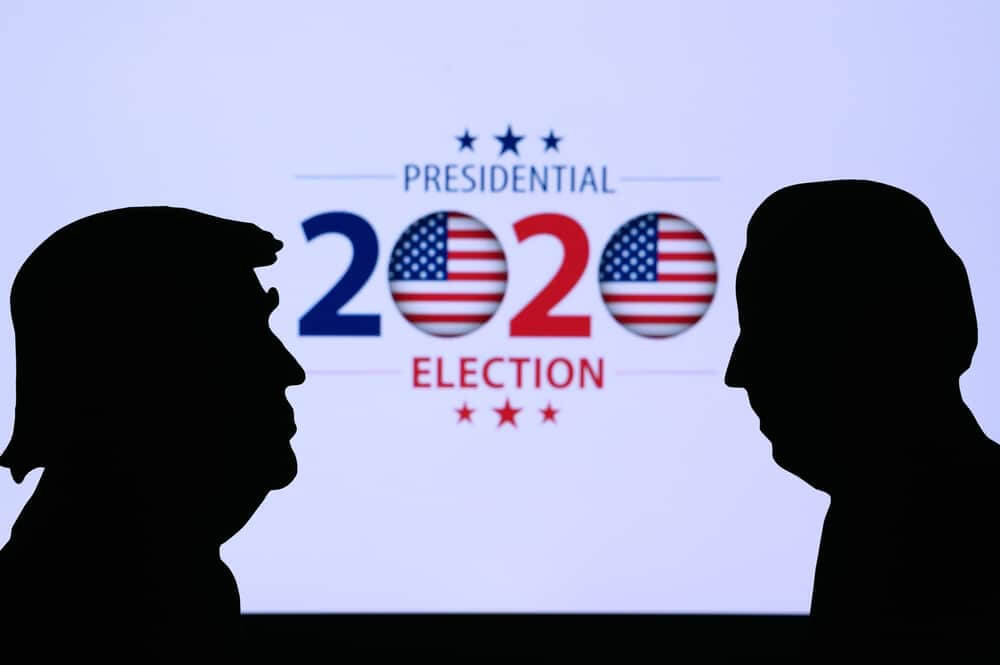
How Did the US Elections Affect Popular Currency Pairs?
Historically, the stock market experiences volatility in the months prior to the US elections. This is logical when you consider how currency market investors are cautious during periods of sustained uncertainty. In turn, this often leads to reduced investment spent during these times.
This was made evident as the 2016 election tightened and the eventual winner Donald Trump closed the gap on the Democratic nominee Hilary Clinton. The S&P 500 fell by more than 5% in premarket trading on the eve of the result announcement.
On a similar note, the US elections also greatly impacted major currency pairings. The extent of these effects weighs heavily on the policies proposed by each candidate as they continue along the campaign trail.
In this post, we spend some time looking into the impact of the US elections on the stock market and the response of major currency pairings in US forex markets.
Why are Markets and Currencies so Susceptible During the US Election Season?
Various markets are constantly at the mercy of macroeconomic factors, with the forex market and the world’s major currencies offering evidence of this.
Interestingly, economic and monetary policies govern many of these factors. The proposed policies of Presidential candidates come under considerable scrutiny in the build-up to an election.
This has a direct impact on the relationship between various international currencies. While it also explains why markets become particularly volatile as voters head to the polls.
For example, we have recently seen a growing trade war between the US and China. This was built primarily on Trump’s inherently protectionist policies and China’s growing influence as a global economic force.
This provides an interesting point for consideration. Typically, re-electing the incumbent President minimizes market volatility. In this instance, such a course of action would further undermine the relationship between the USD and the RMB. This could potentially impact 2.6 million jobs supported by collaboration between the two nations.
Despite this, it is interesting to note that the greenback has benefited from the Trump administration’s unique policy. It combined an aggressive fiscal stimulus at home and trade protectionism abroad. We have seen a sustained rise in the Dollar Index that has been observed since the election of Barack Obama in 2008.
With these points in mind, the election of Democratic nominee Joe Biden could provide a double-whammy to the dollar. Experts predict increasing global volatility, thus triggering a significant shift in policy that may undermine the dollar’s upturn.
A Look at Further Policies and Their Economic Impact
This is just the tip of the iceberg when it comes to appraising the impact of policies on the markets in the build-up to the US elections. However, these factors can be influential both before and after the cycle has been completed.
This year will be no exception to the rule. As Trump’s economic platform largely mirrors the classic conservative mantra of minimizing national debt reduction. Along with policies for creating jobs within the private sector and generally lowering taxes across the board.
Of course, the coronavirus crisis has undermined the President’s plans. Which created a total death toll that now exceeds 225,000. However, he has been successful in rolling out his widespread tax cuts and business-friendly legislation. These legislations tend to bring a sense of stability to the stock and forex markets. Thus, allowing for a long-term appreciation in the value of the greenback.
Conversely, Biden’s democratic mandate is based on significant infrastructure spending (in the form of the so-called “Green New Deal”) and public sector job growth. Biden’s policies hint at a far larger government and significant evolution within the labor market.
While Biden’s tax plan faced thorough debate, it will target higher earners in the states. This plan reinforces the principles of socialism and big government that tend to create fear and uncertainty in the world’s financial market.
This seems to reaffirm the idea that Biden’s election will now create something of a bearish outlook for the USD and America’s major tech stocks. Along with uncertainty created by huge infrastructure spending, the transition from fossil fuel oil to cleaner energy will also take its toll in the near-term.
The Last Word
With Biden’s recent victory over Trump, it should come as no surprise that the USD is continuing to fare poorly against many of its major rivals.
The GBP/USD was up by 0.12% from the start of trading. However, the EUR/USD has also made gains of 0.1%. Similarly, the USD/JPY is down by 0.181%, while the greenback has also lost ground against the CAD.
Interestingly, the USD/RMB pairing went up by 0.13%. However, Biden’s recent victory can explain this anomaly. As well as the fact that his election may end the damaging trade war between North America and China.
Of course, some of these trends and movements have been exacerbated by Covid-19 and the potential $2.2 trillion stimulus package being discussed in Congress. Even so, there’s no doubt that they’re indicative of the US election cycle, the current polling, and the respective policies of each candidate.
-
Support
-
Platform
-
Spread
-
Trading Instrument




